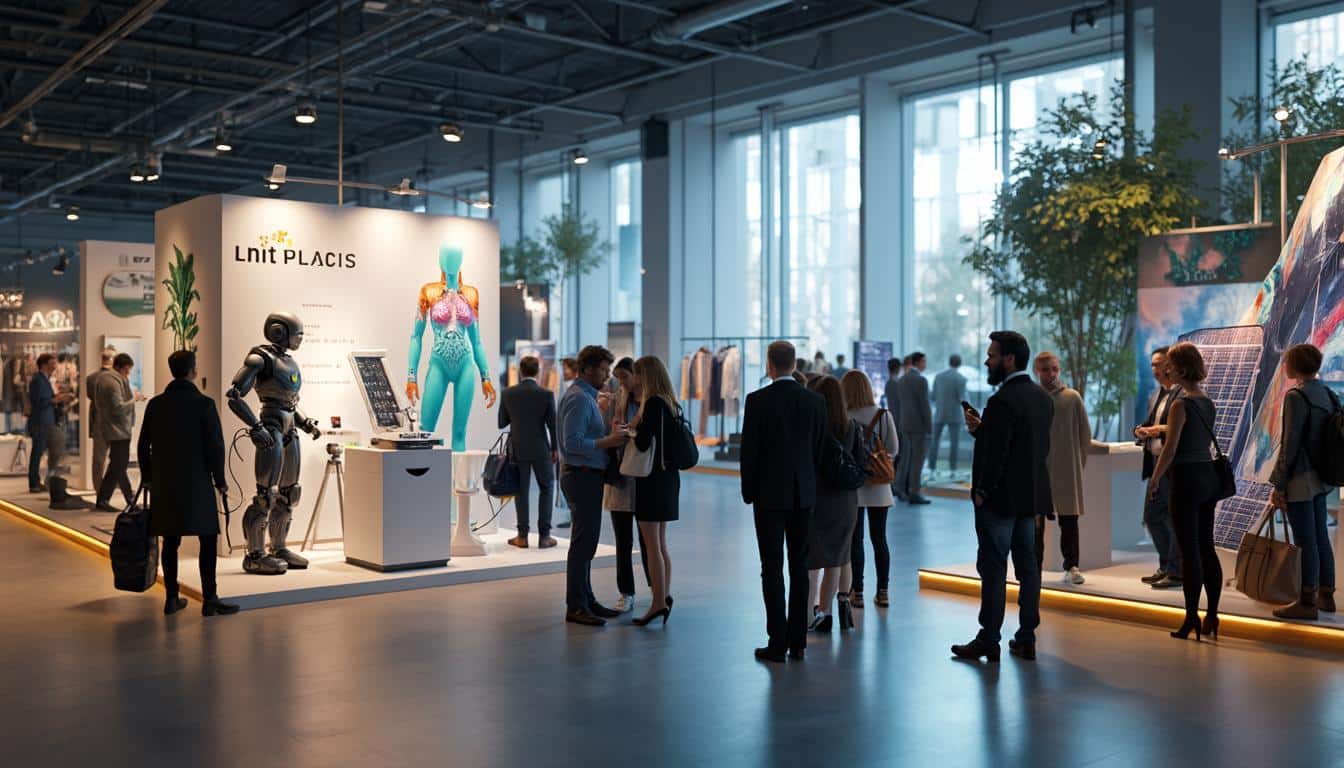When it comes to saving the planet, every thread counts! Semin Group is stitching up a greener future with Tremplin. Who knew insulation could be this eco-chic?
By embracing 100% recycled textiles, Semin is turning forgotten attics into eco-friendly havens. The innovative Impact process ensures that no fabric flees to far-off lands or ends up buried in landfills. Partnering with Tremplin, they’re weaving sustainability into the very fibers of building materials. This dynamic duo is not only reducing environmental footprints but also adding a playful twist to the world of construction. As Caroline Semin leads the charge, the future of energy renovation looks bright and hilariously sustainable. Say goodbye to dull insulators and hello to a greener, gigglier home improvement journey!

« `html
Table of contents
Togglehow semin group is revolutionizing textile recycling
In 2023, Semin Group took a significant step forward by acquiring Buitex, marking a transformative moment in the textile recycling industry. This strategic move enabled the Moselle-based conglomerate to expand its portfolio with a range of eco-friendly insulating materials made entirely from recycled textiles. These innovative products are specifically designed for use in unatticized buildings, addressing a critical need for sustainable insulation solutions in the construction sector.
Semin Group’s commitment doesn’t stop at product development. By partnering with Tremplin, a leading sorting operator behind the Textile 360 initiative, Semin has pioneered a new approach to managing textile waste. This collaboration aims to overhaul the current textile waste model by ensuring that 100% of collected used textiles are either reused, recycled, or valorized. The ultimate goal? Achieving zero textile waste being exported abroad by the end of the year.
This initiative not only promotes environmental sustainability but also supports the local economy by creating a closed-loop system within the region. By diverting textiles from landfills and reducing the reliance on exporting waste to countries with less stringent environmental regulations, Semin Group is setting a new standard for responsible waste management in the textile industry.
what is the impact process by semin and tremplin?
The Impact process is the brainchild of the Semin Group and Tremplin, designed to tackle the pervasive issue of textile waste in France. This system integrates the strengths of both organizations to create a seamless workflow for managing used textiles. Starting with the collection of textiles through Tremplin’s network of voluntary deposit points (PAV) in Rhône-Alpes, the process ensures that every piece of fabric is accounted for and processed responsibly.
Once collected, the textiles undergo a rigorous sorting process at a newly established center in Rhône-Alpes. Here, materials are carefully categorized based on their condition and potential for reuse or recycling. Semin Group then takes the recycled cotton fibers and incorporates them into their range of insulating products, effectively closing the loop and reducing the demand for virgin materials.
This innovative approach not only maximizes the lifecycle of textile materials but also minimizes the environmental footprint of the insulation industry. By ensuring that no textiles are wasted or improperly disposed of, the Impact process stands as a model for sustainable practices in the sector.
why zero textile waste matters
Achieving zero textile waste is more than an environmental aspiration—it’s a necessity in today’s world. The current industry practice sees a staggering 80% of used textiles being exported to third countries, where they often end up in landfills or are incinerated. This not only leads to significant environmental degradation but also poses serious health risks to local communities due to improper waste management practices.
By committing to a zero-waste policy, Semin Group and Tremplin are addressing these critical issues head-on. Preventing textiles from reaching landfills helps reduce pollution, conserve natural resources, and lower greenhouse gas emissions associated with textile production and disposal. Moreover, it fosters a more sustainable economy by promoting the reuse and recycling of materials, thereby reducing the reliance on virgin resources.
This commitment also aligns with global sustainability goals, contributing to broader efforts to combat climate change and promote environmental stewardship. The Impact process exemplifies how businesses can play a pivotal role in driving systemic change toward more sustainable and responsible industry practices.
the pioneering model of impact in france
The Impact process represents a pioneering model for textile waste management in France, blending conventional economy practices with the principles of the social and solidarity economy. This hybrid approach ensures that the environmental objectives are met while also supporting social initiatives and community engagement.
The establishment of the new sorting center in Rhône-Alpes is a key component of this model. By leveraging Tremplin’s extensive network of voluntary deposit points (PAV), the center efficiently collects and sorts used textiles. Semin Group then integrates the recycled materials into their insulating products, ensuring a continuous and sustainable supply chain.
Caroline Semin, the leader of the group, emphasizes the significance of this project in advancing their mission: “This project contributes to our ambition: to offer committed products for responsible housing. This sorting center will support the growth of eco-friendly insulations. The solution built with Tremplin also contributes to reducing the catastrophic environmental impact of exported textiles.” This collaboration not only bolsters Semin Group’s position in the renovation market, particularly in energy-efficient renovations, but also marks a substantial step towards increasing the use of bio-based and recycled materials in the construction industry.
the environmental benefits of semin group’s innovation
Semin Group’s innovative approach to turning used textiles into insulating materials yields numerous environmental benefits. By utilizing 100% recycled textiles in their products, they significantly reduce the demand for new raw materials, thereby conserving natural resources and lowering the carbon footprint associated with manufacturing processes.
Additionally, the closed-loop system minimizes waste, ensuring that textiles are not discarded but rather repurposed into valuable products. This not only prevents the pollution and land degradation caused by textile waste but also reduces the energy consumption and emissions associated with producing virgin materials.
The Impact process also promotes circular economy principles, encouraging the continual use and reuse of materials within the production cycle. This approach not only enhances sustainability but also fosters innovation and resilience within the industry, positioning Semin Group as a leader in eco-friendly practices.
Furthermore, by preventing textiles from being exported to countries with less stringent environmental regulations, Semin Group helps mitigate the global environmental impact of textile waste. This action supports international efforts to improve waste management practices and promotes a more sustainable global textile industry.
future prospects of eco-friendly insulating materials
The success of Semin Group’s Impact process paves the way for future advancements in eco-friendly insulating materials. As the demand for sustainable construction materials continues to rise, innovations like those developed by Semin Group will play a crucial role in shaping the industry’s future.
One promising development on the horizon is the use of recyclable thermoplastic composite hydrofoils, which could complement existing insulation solutions by offering enhanced performance and sustainability. Integrating such technologies with Semin Group’s recycled textile-based insulations could lead to even greater environmental benefits and broader applications in various construction projects.
Additionally, ongoing research and development efforts are likely to further improve the efficiency and effectiveness of recycled insulating materials. Advances in material science and processing techniques could result in products that meet higher standards of thermal performance and durability, making them more competitive with traditional insulation options.
As awareness of environmental issues grows, consumer demand for sustainable products is expected to increase. Semin Group’s proactive approach positions them well to meet this demand, fostering long-term growth and reinforcing their commitment to environmentally responsible practices.
The collaborative model established with Tremplin could also inspire similar partnerships across different regions and industries, amplifying the impact of sustainable initiatives and contributing to a more circular and resilient economy. By continuing to innovate and expand their sustainable practices, Semin Group is set to remain at the forefront of the green revolution in the construction and textile industries.














